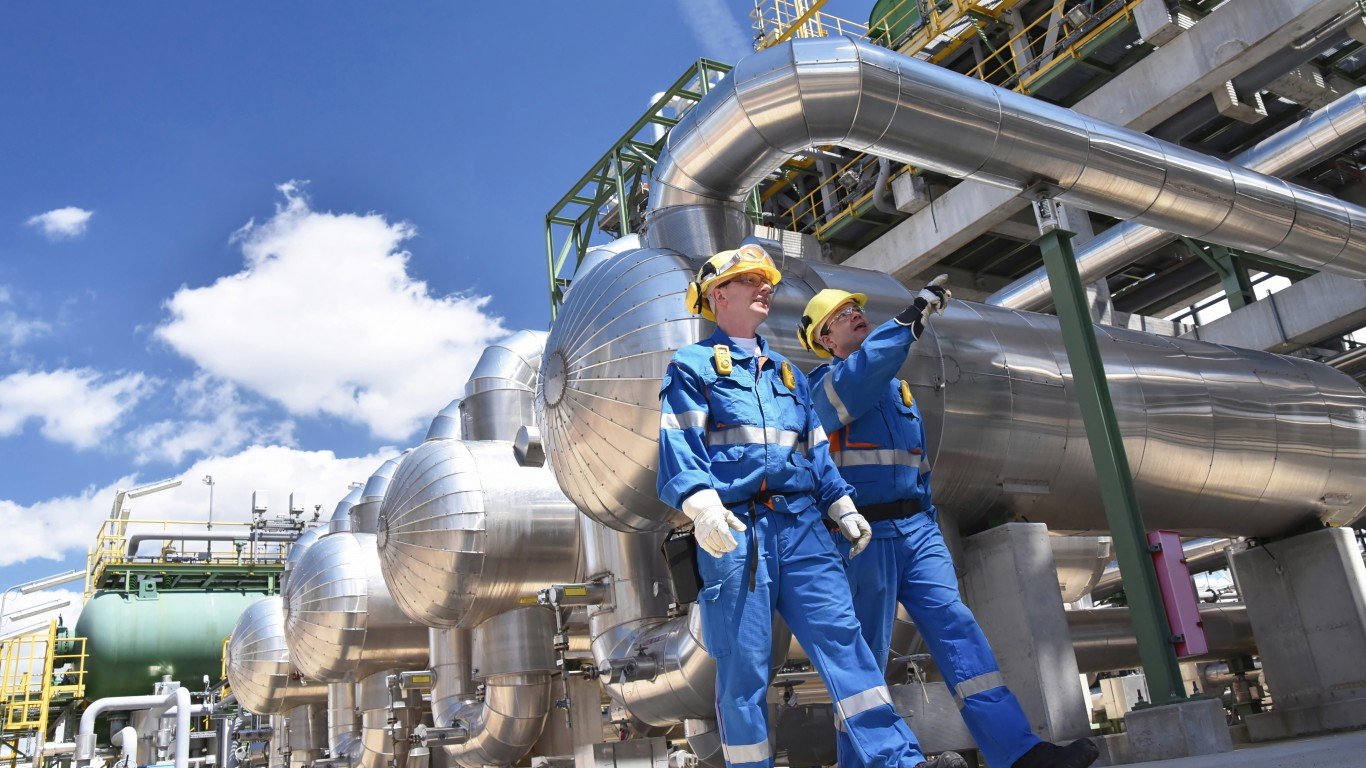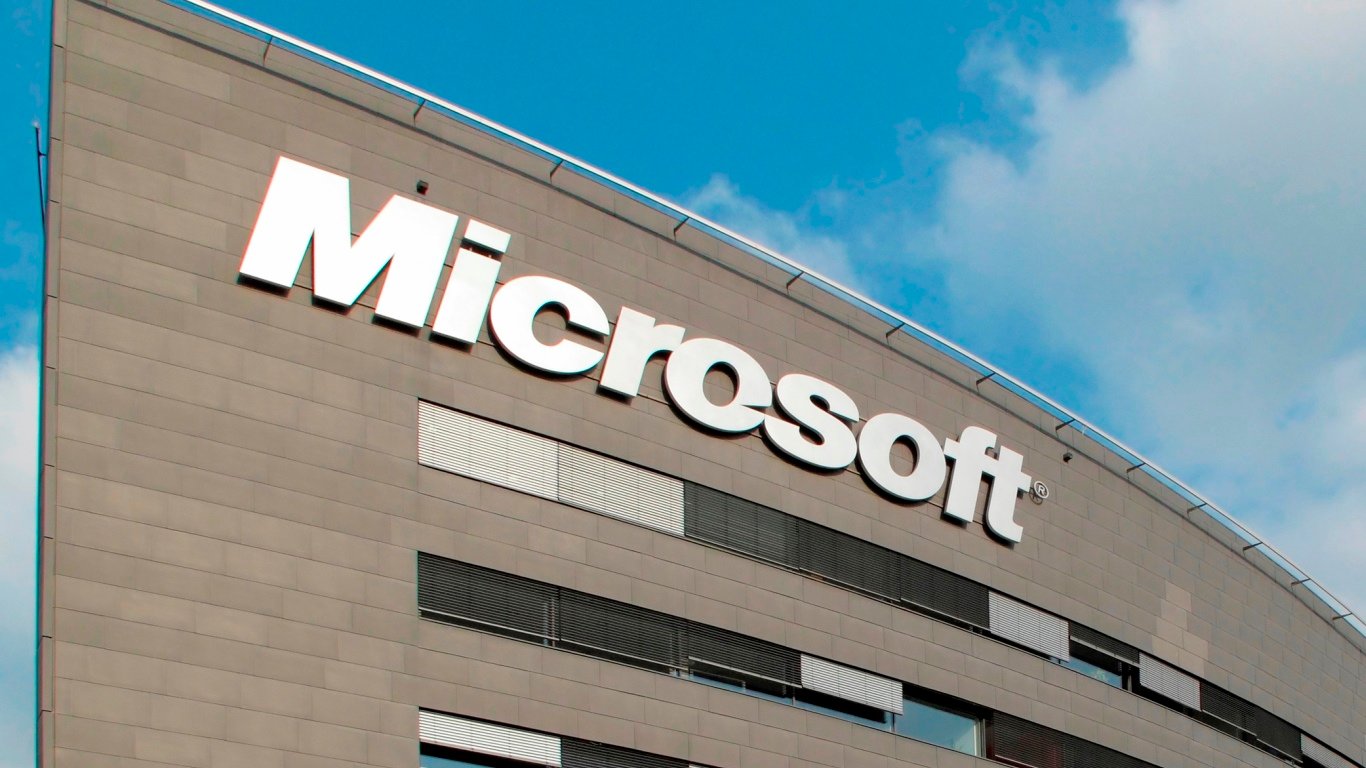

The U.S. average pump price of a gallon of regular gasoline now tops $3, an increase of 27% since January 1 and 55% above its level 12 months ago. U.S. refiners are experiencing their highest gross margins since 2015, currently around $24 a barrel, compared to just $10 a barrel in January. The result is that refiners are producing more gasoline as demand for auto fuel is rising faster than demand for jet fuel and other products.
Given that backdrop, it’s a bit surprising that Goldman Sachs on Thursday downgraded U.S. refiner HollyFrontier Corp. (NYSE: HFC) from Neutral to Sell and cut its 12-month price target from $38 to $34. HollyFrontier shares were trading at around $34.30 just before noon Thursday.
Goldman analyst Neil Mehta offers five key drivers for the downgrade. First, HollyFrontier’s capital allocation strategy suggests that the company is more willing to suspend its dividend than to cut its “elevated capital intensity” this year and next. Second, Mehta sees downside risk to the consensus price target due to Goldman’s “less favorable crude differential views and renewable diesel estimates.”
Third, HollyFrontier’s renewable diesel project is “less advantaged” than similar projects at competitors. Fourth, Goldman sees less favorable Brent-WTI price differentials that are currently “highly correlated” to HollyFrontier’s refining margins. Fifth, Goldman sees 5% total downside to its six-month sum-of-the-parts and P/E-based price target and believes that the stock is too expensive compared with peers on a free cash flow yield basis.
HollyFrontier has said it is willing to forego its annual dividend yield of around 4% to fund an acquisition that, in Mehta’s mind, create “near-term concerns around the company’s commitment to returning capital to shareholders, particularly given the historical capital allocation strategy that has prioritized payment of a competitive and sustainable dividend over investment in growth capital or acquisitions with attractive returns and classified the regular dividend as non-discretionary.”
Goldman does expect the company to generate a free cash flow yield of 5% to 7% in 2022 and 2023, but that’s below the firm’s refining coverage average of 8% to 11%. An increase in capital expenditures guidance from a range of $650 million to $750 million to a new range of $800 million to $900 million adds to the uncertainty.
Mehta expects the price difference between Brent and WTI (around $7 a barrel in 2019) to narrow to $3 to $4 a barrel in the next two years, right where the spread is now. HollyFrontier has in the past feasted on its ability to source WTI at favorable spreads.
What could change Goldman’s assessment? First, if HollyFrontier scuttles its plan for a one-year dividend suspension to pay for Shell’s Puget Sound refinery and reinstates the dividend sooner. Continued strength in HollyFrontier’s specialty products division could add to the company’s valuation. A third upside risk would be improved economics on the company’s renewable diesel project. Finally, the Brent-WTI price spread could widen to the historical average of more than $4 a barrel or more, improving HollyFrontier’s margins.
HollyFrontier stock traded down about 2.2% early Thursday afternoon, at $33.86 in a 52-week range of $16.81 to $42.39. The consensus price target is $40.
Essential Tips for Investing: Sponsored
A financial advisor can help you understand the advantages and disadvantages of investment properties. Finding a qualified financial advisor doesn’t have to be hard. SmartAsset’s free tool matches you with up to three financial advisors who serve your area, and you can interview your advisor matches at no cost to decide which one is right for you. If you’re ready to find an advisor who can help you achieve your financial goals, get started now.
Investing in real estate can diversify your portfolio. But expanding your horizons may add additional costs. If you’re an investor looking to minimize expenses, consider checking out online brokerages. They often offer low investment fees, helping you maximize your profit.
Thank you for reading! Have some feedback for us?
Contact the 24/7 Wall St. editorial team.
 24/7 Wall St.
24/7 Wall St.

